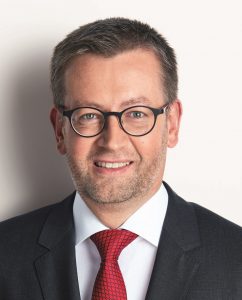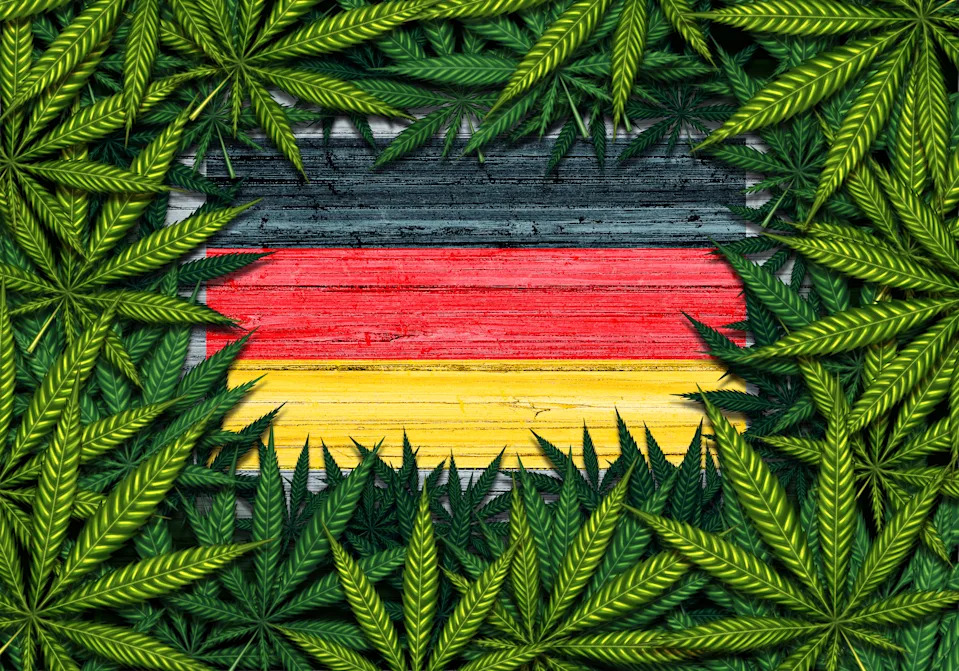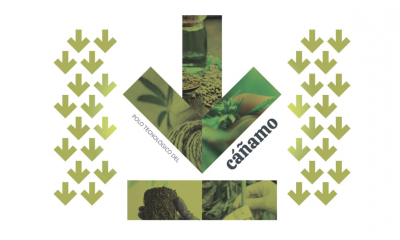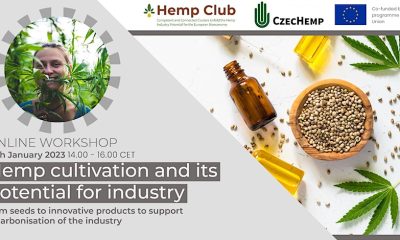Germany is getting closer and closer to legalizing cannabis and the vast majority of political parties have already agreed to take the step forward. But the effective implementation of policies that will regulate the sector is being hampered by international law, bureaucracy and tax rules. According to an analysis published in the German media Deutsche Welle (DW), activists want the process to be accelerated, calling for immediate decriminalization, but for the government the transition process could take at least another year.
The issue involves almost all German government ministries and the fact that so many bodies are involved makes the legislative process "very complex", said the government's commissioner for drugs and drug addiction, Burkhard Blienert, to the Deutsche Welle (DW). "It covers agriculture, youth protection, policing, tax issues and much more."

Burkhard Blienert, German government commissioner for drugs and drug addiction has a very liberal approach, being in favor of legalizing adult cannabis use
The coalition government of the Center-Left Social Democrats (SPD), the Environmental Greens and the Neoliberal Free Democrats (FDP) have declared that they are introducing “the controlled supply of recreational cannabis to adults in licensed stores”. However, turning intentions into practical policies is proving to be “a monumental task”, says the German newspaper.
“The goal is a coherent concept that allows adults to obtain cannabis from licensed specialty stores, ensuring the protection of health and the protection of minors,” said Blienert.
Most parties agree with legalization and even the CDU's conservative Christian Democrats toned down their speech, confirmed to DW by CDU deputy and member of the health committee of the Bundestag, Erwin Rüddel.
“I meet more and more party colleagues who have an increasingly differentiated vision. Hto this extensive consumption of substances. That's why we need to provide safe access to those who want to use cannabis recreationally. We will gain more control of the drug problem this way than by turning a blind eye,” he said.
Consumers are still detained by the police
In Germany, a cannabis user is picked up by the police and tried by the court system in Germany every three minutes. Authorities will continue to enforce the drug law, and it could be several years before there are actually licensed specialty stores to sell cannabis. This is exactly why activists are calling for cannabis use in Germany to be decriminalized immediately.
The most recent report on drug-related crimes from the Federal Criminal Police Department reveals that only one in six cases of cannabis-related offenders actually involve drug trafficking. Most cases are just the typical “consumption-related crime”, that is, it is not the traffickers or the big fish that are caught in the prohibition net, but only the “stoners”.
Burkhard Blienert, however, criticizes the call for immediate decriminalization, saying he wanted something more comprehensive. “I want a regulated market. Decriminalization goes hand in hand with that,” the drug commissioner emphasized. “It is better not to break things down into individual elements now, but to think of everything together,” he said.
Millions of consumers = billions in taxes

Dusseldorf economist Justus Haucap valued the German market at around €4 billion to €5 billion.
Dusseldorf-based economist Justus Haucap also told DW that legalization will affect around 4 million people who use cannabis in Germany, most of them only 'occasionally'. “We tried to assess what that means in terms of the amount of cannabis. We expect a market volume of around 400 tonnes, which is valued at between 4 and 5 billion euros,” he said. The figures were presented at an expert hearing at the Ministry of Health earlier this year.
In a report, carried out in 2021, Haucap calculated the possible income from taxes and social security contributions, as well as the savings made by the police and the judicial system (which will occur when users stop prosecuting).
About 200 experts (German and international), including Haucap, met for five days to discuss the legalization of cannabis. “The most surprising thing for me was that we almost never discussed the 'if', only the 'how'”, describing the dialogue between the various groups, “who have very different interests”, as open and constructive.
The way forward is as ambitious as it is uncertain. “The agreement is that the federal government will adopt key points in the autumn and draft a law based on that. It will then be deliberated in parliament. I predict this will happen next year. When will the law be passed and come into force? This is in the hands of Parliament,” said Commissioner Blienert.
Until then, many questions need to be resolved, but one of them is fundamental: where will cannabis come from? The industry representative, Heitepriem, sees little room for international trade and the importation of traditional growers such as Morocco or Lebanon. “United Nations conventions prevent us, as do European regulations,” said Heitepriem, adding: “We assume that there will have to be production in the country, at least initially. This requires a huge investment and, above all, a period of one and a half to two years to ensure the necessary production capacities”.
Bypass the UN Conventions
The UN Convention on Narcotic Drugs also worries Burkhard Blienert. “Until now, international agreements have been read in such a way that cannabis must be strictly pursued,” he notes, noting that one of the relevant UN conventions dates back to the 2022s. “It was a different time. But if we now want to move into a new era, with new policies around drugs and drug addiction, which also serve modern health policies, then it is necessary to conduct debates and discussions – including on how these agreements should be understood in XNUMX.” .
In its most recent annual report in March, the International Narcotic Control Board (INCB), which monitors UN drug conventions, made it clear: “Measures to decriminalize the personal use and possession of small amounts of drugs are consistent with the provisions of the drug control conventions”. At the same time, they argued that legalizing the entire supply chain, from grower to consumer, violates drug control conventions.
However, two countries – Uruguay and Canada – have already legalized the cultivation, trade and distribution of cannabis, as have 22 states in the US. The “violations” of UN rules did not have any significant consequences. Haucap sees a strong international movement towards the legalization of cannabis.
As Germany is the most populous country in Europe, its neighbors are following developments with great interest, according to Haucap: “If Germany creates a legal market for cannabis, I think that would send a very positive signal.”










































